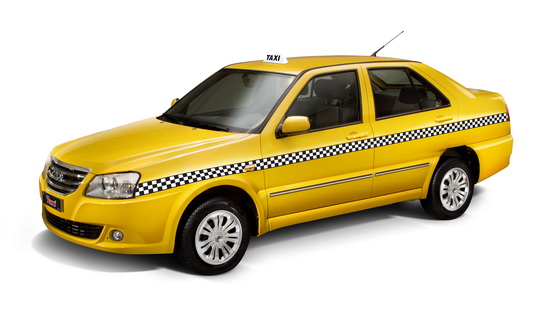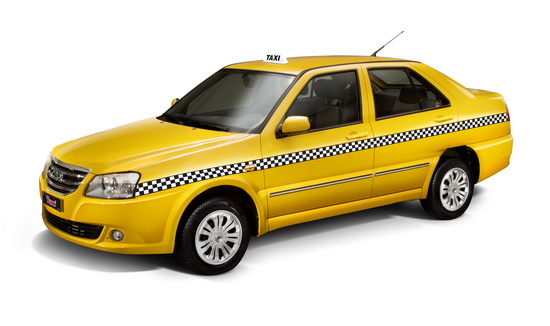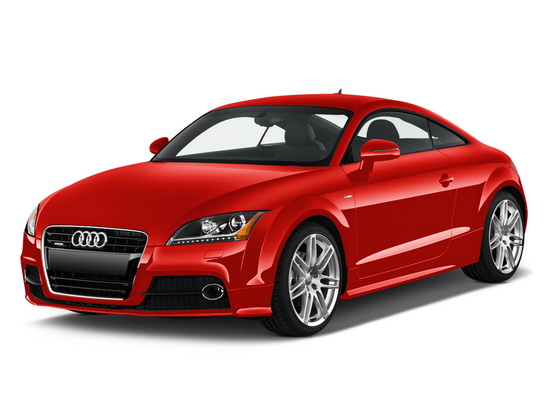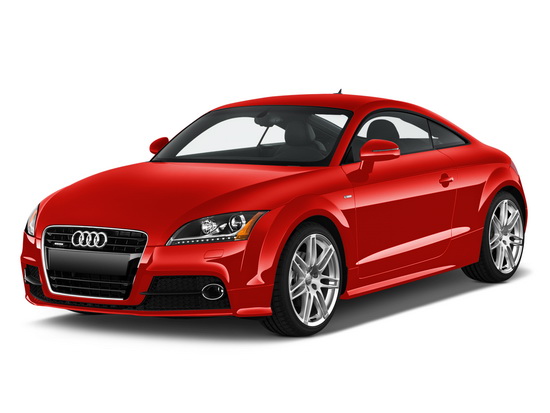car
car [car cars] [kɑː(r)] [kɑːr] noun
1. (also BrE formal ˈmotor car) (NAmE also auto·mo·bile) a road vehicle with an engine and four wheels that can carry a small number of passengers
• Paula got into the car and drove off.
• ‘How did you come?’ ‘ By car.’
• Are you going in the car?
• a car driver/manufacturer/dealer
• a car accident/crash
• Where can I park the car?
see also company car
2. (also rail·car both NAmE) a separate section of a train
• Several cars went off the rails.
3. (BrE) (in compounds) a coach/ car on a train of a particular type
• a sleeping/dining car
Word Origin:
late Middle English (in the general sense ‘wheeled vehicle’): from Old Northern French carre, based on Latin carrum, carrus, of Celtic origin.
Culture:
driving
Americans have long had a ‘love affair’ with the automobile (also car), and are surprised when they meet somebody who cannot drive. Almost everybody over the age of 15 is a driver and most households have a vehicle. American life is arranged so that people can do most things from their cars. There are drive-in banks, post offices, restaurants, movie theatres and even some churches.
In Britain the proportion of the population who are drivers is slightly less but, as in the US, many people prefer to use their car rather than public transport, because it is more convenient and because they like to be independent. In order to reduce pollution the government tries to discourage car ownership by making driving expensive. In particular, it puts a heavy tax on petrol and increases the annual road tax for cars that cause heavy pollution. Congestion charging is used to persuade people to avoid driving their cars in city centres.
To many people the make and quality of their car reflects their status in society, and it is important to them to get a smart new car every few years. In Britain since 2001 the registration number of a car shows the place and date of registration but older number plates can be used and a personalized number plate (= a registration number that spells out the owner’s name or initials) may also suggest status. Many people prefer to buy a small, economical car, or get a second-hand one. Cars in the US are often larger than those in Britain and though petrol/gas is cheaper, insurance is expensive. In the US car license plates, commonly called tags, are given by the states. New ones must be bought every two or three years, or when a driver moves to another state. The states use the plates to advertise themselves: Alabama plates say ‘The heart of Dixie’ and have a small heart on them, and Illinois has ‘The land of Lincoln’.
In Britain, before a person can get a driving licence they must pass an official driving test, which includes a written test of the Highway Code and a practical driving exam. Only people aged 17 or over are allowed to drive. Learner drivers who have a provisional driving licence must display an L-plate, a large red ‘L’, on their car, and be supervised by a qualified driver. The US has no national driver’s license (AmE), but instead licences are issued by each state. Most require written tests, an eye test and a short practical test. The minimum age for getting a licence is normally 16, although some states will issue a learner’s permit to drivers as young as 14. Many states now apply a system of graduated licenses in which young drivers are first required to have an intermediate license for a period of time before being given a full license. An intermediate licence may, for example, prevent driving alone at particular times of the day or require the driver to take special classes if they drive badly. Americans have to get a new driver’s licence if they move to another state.
In Britain people drive on the left and in the US they drive on the right. Generally British and US drivers are relatively careful and courteous but there is dangerous driving. In the US many of the deaths due to traffic accidents are caused by drivers who have drunk alcohol. Drink-driving (AmE driving under the influence or driving while intoxicated) (= driving a car after drinking alcohol) is also a serious problem in Britain. On many British roads speed cameras have been set up to catch drivers who go too fast. In the US the main job of state highway patrols is to prevent speeding.
Many drivers belong to a motoring organization in case their car breaks down. In Britain the main ones are the AA (Automobile Association) and the RAC (Royal Automobile Club), and in the US the largest is the American Automobile Association.
Thesaurus:
car noun
1. C
• We came by car.
formal vehicle • |AmE, becoming old-fashioned humorous automobile •
2. C (especially AmE)
• This train has no buffet car.
compartment • |BrE carriage • • coach • • truck • • wagon • • van • |especially AmE freight car •
a railway compartment/carriage/coach/truck/wagon
a railroad car
a sleeping car/compartment/coach
a passenger car/compartment/carriage/coach
Collocations:
Driving
Having a car
have/own/ (BrE) run a car
ride a motorcycle/motorbike
drive/prefer/use an automatic/a manual/(NAmE, informal) a stick shift
have/get your car serviced/fixed/repaired
buy/sell a used car/(especially BrE) a second-hand car
take/pass/fail a (BrE) driving test/(both NAmE) driver's test/road test
get/obtain/have/lose/carry a/your (BrE) driving licence/(NAmE) driver's license
Driving
put on/fasten/ (NAmE) buckle/wear/undo your seat belt/safety belt
put/turn/leave the key in the ignition
start the car/engine
(BrE) change/ (NAmE) shift/put sth into gear
press/put your foot on the brake pedal/clutch/accelerator
release the clutch/(especially BrE) the handbrake/(both NAmE) the emergency brake/the parking brake
drive/park/reverse the car
(BrE) indicate left/right
(especially NAmE) signal that you are turning left/right
take/miss (BrE) the turning/(especially NAmE) the turn
apply/hit/slam on the brake(s)
beep/honk/ (especially BrE) toot/ (BrE) sound your horn
Problems and accidents
a car skids/crashes (into sth)/collides (with sth)
swerve to avoid an oncoming car/a pedestrian
crash/lose control of the car
have/be in/be killed in/survive a car crash/a car accident/(NAmE) a car wreck/a hit-and-run
be run over/knocked down by a car/bus/truck
dent/hit (BrE) the bonnet/(NAmE) the hood
break/crack/shatter (BrE) the windscreen/(NAmE) the windshield
blow/ (especially BrE) burst/puncture (BrE) a tyre/(NAmE) a tire
get/have (BrE) a flat tyre/a flat tire/a puncture
inflate/change/fit/replace/check a tyre/tire
Traffic and driving regulations
be caught in/get stuck in/sit in a traffic jam
cause congestion/tailbacks/traffic jams/gridlock
experience/face lengthy delays
beat/avoid the traffic/the rush hour
break/observe/ (NAmE) drive the speed limit
be caught on (BrE) a speed camera
stop sb for/pull sb over for/ (BrE, informal) be done for speeding
(both informal) run/ (BrE) jump a red light/the lights
be arrested for/charged with (BrE) drink-driving/(both US) driving under the influence (DUI)/driving while intoxicated (DWI)
be banned/ (BrE) disqualified from driving
Example Bank:
• He got in the car and they drove off.
• He pulled his car over at a small hotel.
• He swerved his car sharply to the right.
• Her car skidded on a patch of ice.
• His car hit a van coming in the opposite direction.
• I have to take the car in for a service.
• I lost control of the car and it spun off the road.
• I'll wait for you in the car.
• It's too far to walk. I'll take the car.
• It's very expensive to run a car these days.
• Police in an unmarked car had been following the stolen vehicle for several minutes.
• The car does 55 miles per gallon.
• The car was doing over 100 miles an hour.
• The government wants more people to use public transport instead of private cars.
• The government wants to reduce the use of private cars.
• The kids all piled into the car.
• The number of cars on the road is increasing all the time.
• The red car suddenly pulled out in front of me.
• The robbers abandoned their getaway car and ran off.
• The robbers abandoned their getaway car in Sealand Road.
• There was a line of parked cars in front of the building.
• There's not enough car parking in the city.
• They take the children to school by car.
• What cheek! That car pulled out right in front of me!
• You lock up the house and I'll get the car out.
• a car boot sale
• a used car salesman
• cars that run on diesel
• ‘How did you come?’ ‘By car.’
• Are we going in the car?
• He had to take his car to the garage.
• He opened the car door for her.
• I can put the wheelchair in the back of the car.
• I decided to buy a second-hand car.
• She was sitting in the smoking car.
• The driver crashed the stolen car while being chased by the police.
• They parked the car and walked the rest of the way.
• They were admiring his new sports car.
• a buffet car
• a sleeping/dining car




